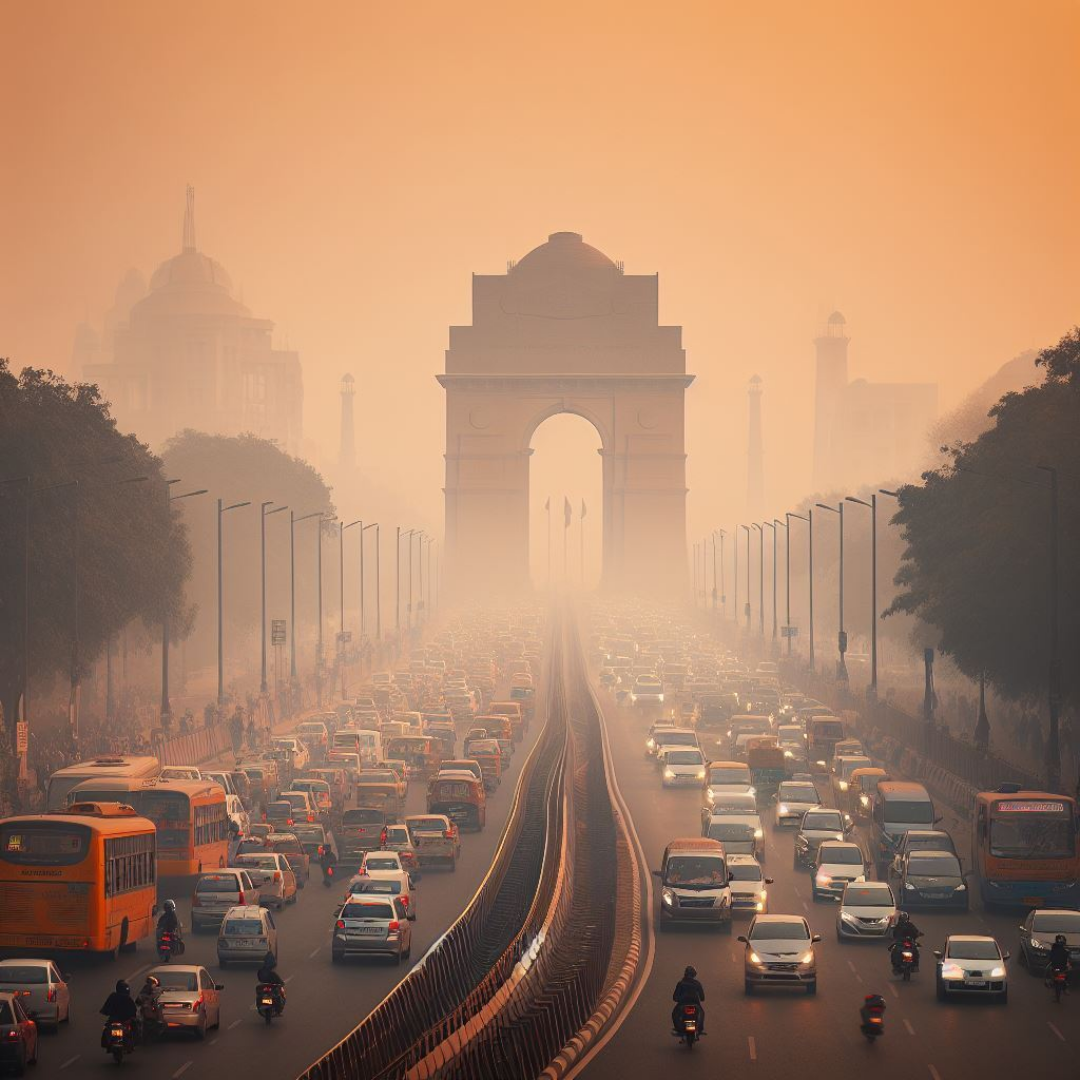The capital city of Delhi, India, has announced strict measures to limit vehicle movement starting next week in an effort to combat the skyrocketing pollution levels.

The capital city of Delhi, India, has announced strict measures to limit vehicle movement starting next week in an effort to combat the skyrocketing pollution levels. Despite ongoing efforts to mitigate the situation, air quality in the Delhi city has dangerously remained in hazardous territory for a third consecutive day.
Delhi perennially earns the dubious distinction of being one of the world’s most polluted cities, particularly in the lead-up to winter. During this season, calm winds and low temperatures conspire to trap pollutants from various sources, including vehicles, industries, construction dust, and agricultural residue burning in nearby fields.
Early on Monday, a thick shroud of smog enveloped the federal secretariat and the president’s palace at the heart of the city, severely reducing visibility in other areas. Public concern over the perilous air quality prompted the Delhi city to extend the closure of primary schools until November 10.
The local government has now announced the implementation of the “odd-even” vehicle rule from November 13 to 20. This move is aimed at curbing the expected surge in pollution levels following the Hindu festival of Diwali on November 12, a day when firecrackers are frequently set off despite a ban.
Under this rule, vehicles with odd registration numbers will be allowed on the roads on odd dates, while vehicles with even numbers can operate on alternate days.
Environmental experts have noted that while the “odd-even” rule has been imposed multiple times since 2016, with some variations, it has proven to be more effective in easing traffic congestion than in reducing pollution levels.
Gopal Rai, the local environment minister, emphasized the necessity of implementing the odd-even rule due to the escalating pollution levels. He mentioned that a meeting will be convened with the police and transport department to finalize the implementation details.
As of Monday, air quality in the city remained in the “severe” category for the third consecutive day, making Delhi the second most polluted city in the world, trailing behind Lahore in Pakistan, according to real-time data compiled by the Swiss group IQAir.
Despite the adverse conditions, a cricket World Cup match involving Sri Lanka and Bangladesh went ahead in the city on Monday. Organizers took measures to install air purifiers in the players’ dressing rooms and used water sprinklers to mitigate pollutants in the air.
In addition to vehicle restrictions, authorities have imposed a ban on construction work for public projects in the national capital region. Furthermore, there are restrictions on the entry of trucks and heavy vehicles into Delhi, as mandated by a federal pollution control watchdog on Sunday.
An analysis of 25 research studies published by Down To Earth magazine on Sunday revealed a disturbing link between poor air quality and various health issues. These include low birth weight, preterm delivery, stillbirth, developmental delays, restricted growth in children, and even mortality.
The escalating air pollution crisis in Delhi underscores the urgent need for concerted efforts to address the root causes and implement effective solutions to safeguard public health and the environment.